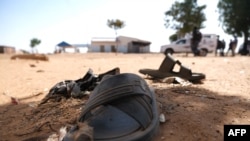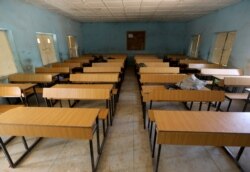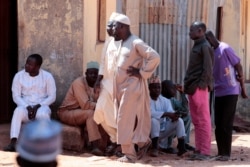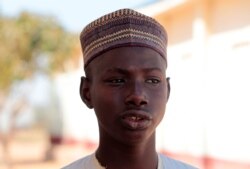Marching at gunpoint in a forest in Nigeria’s northern Katsina state, Usama Aminu Mali wondered whether he and hundreds of other abducted schoolmates would survive.
The 18-year-old said he overheard one of his captors ask in a phone call, “Sir, should we release or kill them?” The order came through: Keep walking. Relieved, Usama kept moving and praying.
He was rescued Sunday morning, 30-some hours after gunmen on motorcycles raided the all-male Government Science Secondary School near Kankara town late Friday, kidnapping hundreds of students and marching them into the Zango/Paula Forest.
Katsina state authorities reported approximately 320 remained missing Tuesday, the same day the Islamist extremist group Boko Haram claimed responsibility for their abduction.
Katsina’s governor, Aminu Bello Masari, said 839 boys were enrolled at the school, according to U.S. broadcast network ABC News. It’s not clear how many students were at the school at the time of the raid, nor how many eluded the kidnappers.
Prayer and poor health factored into Usama’s escape, he suggested in recounting his ordeal to VOA’s Hausa service. Because of chronic illness, he fell behind – and that saved him.
After the gunmen descended on the school and rounded up the students, “we walked all night in the forest,” Usama said. “… Many of us lost our shoes in the rush to leave the school. I was walking barefoot and stepping on thorns.”
At one point Saturday, Usama heard aircraft overhead and the gunmen ordered the students to halt. After a helicopter passed, an older student was ordered to do a head count.
“He counted 520,” Usama said. The gunmen “asked us who would feed all 520 of us. They said we were even more of a liability than the Chibok girls” – the 200-plus students who were abducted by Boko Haram from a school in Nigeria’s northeastern Borno state in 2014.
At least 100 young women remain unaccounted for in the Chibok abductions. The movement to rescue them inspired the hashtag #BringBackOurGirls, now echoed in #BringBackOurBoys.
Usama said the gunmen in Katsina, increasingly wary of detection, divided the students into groups. He was among about 50, with four gunmen in front and others walking alongside the students. They marched for hours, with older students forced to carry those who couldn’t walk.
Abuse and deprivation added to the trek’s difficulties. “They kept hitting us as we walked,” Usama said of the captors.
“There was no food, so we started picking fruits and leaves from any available tree. I was so weak and couldn’t stand up, so other students had to bring me the leaves to eat. It makes one thirsty, and there was no water to drink,” said Usama.
The students continued marching into the night Saturday. “After walking for a long time, they asked us to kneel down while they waited for other students to catch up,” Usama recalled. He realized they were near a village.
“I decided to find a place to lie down because I was in serious pain,” with aching bones, he said. “I could not walk anymore. I was saying to myself, ‘I may be lucky for them to leave me behind.’ I started praying.”
The gunmen, trying to avoid detection, moved the group under cover of darkness – and didn’t notice Usama’s absence.
Usama said that after the others left, he summoned enough strength to approach a mosque in the village. At dawn, a worshipper stepped in – and Usama coughed to get his attention. After prayers, the worshipper provided clothing to cover Usama’s school uniform, then paid a motorcycle taxi to take Usama to his parents.
Nigeria’s central government began a rescue operation Saturday. A spokesman for Katsina state’s governor, Abdu Labaran, on Monday told CNN that at least 446 students had been reunited with their parents.







